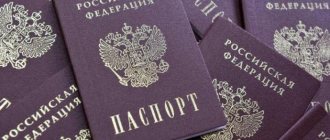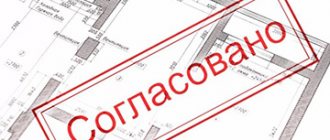Business lawyer > Accounting > Taxes > What is 3-NDFL in simple words: what is it for?
This abbreviation is mentioned quite often, people pronounce it, but it is not clear what they are talking about? What is it and why is it necessary? In reality, everything is quite simple, because we are talking about a special document that is filled out by citizens of the Russian Federation at the end of each calendar year, but only in cases where they received any income during that very year. This article talks about what 3-NDFL is in simple words for ordinary people.
Income for ordinary workers
Every employee of an enterprise, both private and public, pays income tax, which is determined by the state and amounts to 13 percent of the amount of income. In this case, the accounting department takes care of all the calculations and automatically takes a percentage from the amount earned. So if:
Income of the population
- You are an employee of an ordinary company and do not receive any additional income other than the basic salary, in this case there is no point in worrying, because in this case you can forget about the tax return.
- You receive additional income during the year, then you will have to fill out such a declaration.
There are also cases with non-permanent additional income, when a person works in an organization, but at the same time:
- Sells some real estate or property that is in his ownership, it can be a car, apartment, house, plot or any other type of property
- Wins a lottery, receives any valuable gifts, etc., and does not pay income tax
- Sells any securities
- Rent out property
- Opens his own individual entrepreneur, is a notary or lawyer
Compensation for taxes imposed on income
The law provides not only the possibility of withholding taxes from citizens, but also the possibility of returning partially or even completely. Income tax can be refunded for one year or for several past years.
Compensation of expenses
The 3-NDFL tax return has enormous potential for the return of various tax payments in a wide variety of cases. Here is a list of some transactions for which the tax payment can be partially or fully refunded:
- Purchase of property (real estate)
- Paid training, also if payment is made for another person, relative, etc.
- Payment of voluntary pension contributions, contributions to charity
- Treatment for money
This list is expanding every year, so you shouldn’t miss a good chance to get some of the money paid back. But first you need to learn how to fill out the 3-NDFL tax return.
By what date do you need to submit your tax return?
This is one of the most frequently asked questions. The widespread idea that all tax transactions are strictly limited to certain deadlines, in this case, has no basis. This is just another misconception, or the result of unreliable information being replicated online. By definition, there is no deadline for filing a tax return.
For example, the information that after April thirtieth no one will accept your declaration, to put it mildly, is untrue. This date refers to a completely different type of document. This is the deadline for the tax inspectorate to accept income declarations of individuals for subsequent calculation of personal income tax, and has nothing to do with tax deductions.
So the question about the timing of filing documents for tax deductions loses all meaning. Anyone can do this at any time. You can even limit yourself to one declaration to file a deduction for two or three years at once, and believe me, nothing bad will happen in this regard.
Filling out 3-NDFL
In order to understand how to apply for 3-NDFL, you must first understand what this document actually is and what its strange name means. Personal income tax stands for personal income tax, and 3 means the declaration number, or rather its form, because in addition to this certificate, there are also the first, second and fourth forms.
You can fill out this document in different ways:
- By hand, using a pen, and the form itself must be printed
- Using a ready-made form that is filled out in Excel
- Order filling on some website or from a lawyer
- In any online service
- Using the “Declaration” program from the Federal Tax Service
Usually, rarely does anyone fill out a tax return correctly on their own the first time, so the best method would be to fill out the return by hand, but with a pencil, and then circle it with the inspector and correct any possible errors. But still, in this case, you have to perform the calculations yourself.
The best way, if it is possible to use the program specified in the last method, is to use it, because there the declaration sheets are generated automatically and you do not have to perform unnecessary calculations.
When and by whom is the 3rd personal income tax declaration filed?
As already mentioned, personal income tax is a tax on individuals. Taxpayers under it include individual entrepreneurs, unless otherwise specified in the law (for example, in the case of choosing special tax regimes). The number of persons who pay this tax to the treasury of the Russian Federation is approximately equal to the number of the entire working population of the country. Accordingly, if all these taxpayers were required to provide personal income tax returns, then the tax services simply would not be able to cope with the volume of incoming information. And forcing all able-bodied citizens of the country to independently calculate taxes and transfer them to the budget would not be productive. A tax with so many independent taxpayers would hardly be able to be administered effectively.
In order to facilitate the collection of personal income tax, the so-called institute of tax agents is used when calculating and withholding it. These are legal entities and individuals who are sources of income for payers of this tax. For the majority of working citizens in Russia, tax agents are their employers - the organizations in which they work. An employer with a professional accountant on staff calculates, withholds and remits taxes. In the future, it also provides tax reporting on it. This state of affairs relieves most citizens of the obligation to declare their income.
At the same time, tax legislation provides for cases when the taxpayer:
- is obliged to declare his income himself,
- has the right to do so in prescribed cases.
The legislation provides for the following cases when a taxpayer is obliged to independently calculate the amount of his tax, transfer it to the budget and at the same time declare his income:
Depending on the type of income:
- income was received from a person who is not a tax agent (for example, from renting out real estate - apartments, houses, etc.),
- income from civil and labor contracts),
- income was received from a person who is a tax agent, but tax on the income was not withheld (for example: if upon dismissal the amounts due to the employee are not sufficient to withhold tax),
- income was received as a result of sales of property (exception: property that was in the possession of the income tax payer for more than three years),
- income from winnings (for example, lottery),
- income whose source is located outside the country.
Depending on the category of individual taxpayer:
- individual entrepreneurs,
- notaries,
- lawyers,
- foreigners working under a patent for individuals, performing work duties of a personal, household and other nature not related to business activities,
- foreigners working under a patent, legal entities and individual entrepreneurs, including notaries, lawyers and other persons engaged in private practice.
Rules for filing 3-NDFL
You can take your tax return to the tax office at your place of residence. You can do this not only personally, but also by entrusting it to your relatives or friends. In order to do this, you need to draw up a power of attorney for this right and have it certified by a notary office. When parents file a tax return, a power of attorney is not needed, only a document is needed that confirms the relationship.
There is also the option of sending this document by mail to the address of the local tax office (at your place of registration), the main thing is to simply send it on time, and that the date on the envelope is April 30.
One of the most effective options is sending a tax return using your personal account in government services, if you have the Internet.
Based on this article, you can understand what 3-NDFL is and why it is needed. The main thing is to pay taxes on time and in cases where additional income appears, do not forget about filing this tax return.
Top
Write your question in the form below
Is it necessary to fill out and submit a 3-NDFL declaration to the tax office - online test
Attention! This test covers only the most common situations where a declaration is required. If you want to get the most accurate answer, we recommend contacting a consultant.
You need to fill out and submit a declaration to the Tax Inspectorate.
There is no need to fill out and submit a 3-NDFL declaration.
With the help of a special report - tax return 3-NDFL - citizens of the Russian Federation - individuals report to the budget on the status of income tax (NDFL) calculations. A person must pay income tax on all earnings. When calculating and paying wages, personal income tax is transferred to the budget by the tax agent, i.e. employer. For all other profits - sale of real estate, receipt of prizes, etc., the citizen is obliged to independently pay personal income tax.
Taxpayers
Certain groups of persons submit a declaration in form 3-NDFL:
- The category of citizens who do not have a tax agent and have to accrue and pay income tax to the budget themselves (private notaries, individual entrepreneurs on OSNO, practicing lawyers, and some others);
- Citizens who are tax residents of Russia and who received income outside the Russian Federation in the past year;
- Residents of the Russian Federation who in the past tax period received additional income on which personal income tax must be paid:
- Citizens who sold the vehicle;
- Citizens who sold any real estate (house, land, apartment);
- Citizens who rented residential premises;
- Those who have received a win or a large valuable prize, etc.
An example from life: in the past 2020 Ivanov N.I. sold a house that he owned for less than 3 years. The citizen is obliged to pay personal income tax to the budget on the amount of the purchase and sale agreement and voluntarily submit a tax return no later than the date specified by law.
Note! For real estate acquired through a compensated transaction after 01/01/2016, a different minimum tenure is established - 5 years, after which a person is exempt from paying personal income tax when selling this property.
IMPORTANT: when receiving additional income, the income tax payer has the right to take advantage of standard tax deductions, which are different for each type of income. Often the amount of personal income tax payable is seriously reduced. You need to know this when submitting your declaration!
Tax declaration form 3-NDFL is also submitted in cases where the taxpayer makes expenses specified by the Tax Code of the Russian Federation, from which the withheld income tax can be returned. Such cases are the following:
- Purchase or construction of real estate;
- Educational courses or university studies (including for children);
- Paid expensive treatment;
- Dental prosthetics, etc.
The list of expenses for which a return from the personal income tax budget is provided can be found in the Tax Code, at the stand at any tax office, or read the article All types of tax deductions.
Tax period and reporting deadlines
The tax period, or the period for which citizens report to the budget, is the year preceding the calendar year. In 2018, the tax campaign for 2020 took place.
The deadline for submitting reports on this form is until April 30 of the current year inclusive for the past tax period. As a rule, conscientious taxpayers do not wait until the last day and file their returns earlier. This applies to those who must report income; tax deductions for the past tax period can be submitted throughout the year.
Tax liability
Based on the provisions of Article 119 of the Tax Code, a system of fines is applied to citizens who do not submit reports on time or miss the deadline for filing the 3-NDFL declaration. Starting from April 30, each day of delay may “cost” an undisciplined taxpayer 5% of the amount of tax payable to the budget. Penalties have limitations:
- The minimum fine is 1 thousand rubles;
- The maximum is 30% of the tax payable.
An example from life: in the past 2020, citizen Petrova V.K. sold real estate for the amount of RUB 1,200,000. The tax due (13%) is RUB 26,000. (a tax deduction is applied from one million). Vera Konstantinovna “slept through” the tax campaign and submitted the report only on June 11, 2020. Let’s calculate the amount of the fine: 2 months * (26 thousand rubles * 5%) = 2,600 rubles.
IMPORTANT: penalties apply only to those citizens who must submit this declaration! If a resident of the Russian Federation wants to return income tax from the budget, he can submit 3-NDFL at any time convenient for him.









